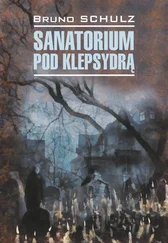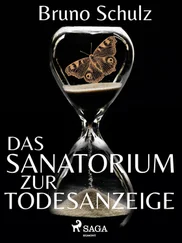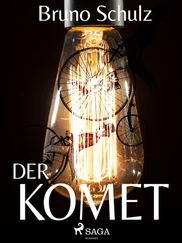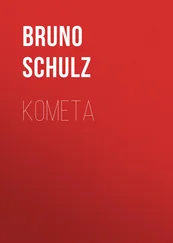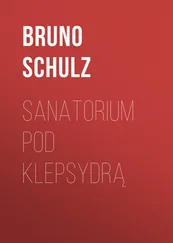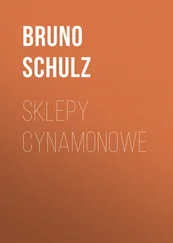It soon became necessary to move my father to two rooms at the top of the house which had served as storage rooms. We could hear from there, at dawn, the mixed clangor of birds’ voices. The wooden walls of the attic rooms, helped by the resonance of the empty space under the gables, sounded with the roar, the flutterings, the crowing, the gurgling, the mating cries. For a few weeks Father was lost to view. He only rarely came down to the apartment and, when he did, we noticed that he seemed to have shrunk, to have become smaller and thinner. Occasionally forgetting himself, he would rise from his chair at table, wave his arms as if they were wings, and emit a long-drawn-out bird’s call while his eyes misted over. Then, rather embarrassed, he would join us in laughing it off and try to turn the whole incident into a joke.
One day, during spring cleaning, Adela suddenly appeared in Father’s bird kingdom. Stopping in the doorway, she wrung her hands at the fetid smell that filled the room, the heaps of droppings covering the floor, the tables, and the chairs. Without hesitation, she flung open the window and, with the help of a long broom, she prodded the whole mass of birds into life. A fiendish cloud of feathers and wings arose screaming, and Adela, like a furious maenad protected by the whirlwind of her thyrsus, danced the dance of destruction. My father, waving his arms in panic, tried to lift himself into the air with his feathered flock. Slowly the winged cloud thinned until at last Adela remained on the battlefield, exhausted and out of breath, along with my father, who now, adopting a worried hangdog expression, was ready to accept complete defeat.
A moment later, my father came downstairs — a broken man, an exiled king who had lost his throne and his kingdom.
AT THE TIME OF THE shortest, sleepy winter days, edged on both sides with the furry dusk of mornings and evenings, when the city reached out deeper and deeper into the labyrinth of winter nights, and was shaken reluctantly into consciousness by the short dawn, my father was already lost, sold and surrendered to the other sphere.
His face and head became overgrown with a wild and recalcitrant shock of gray hair, bristling in irregular tufts and spikes, shooting out from warts, from his eyebrows, from the openings of his nostrils and giving him the appearance of an old ill-tempered fox.
His sense of smell and his hearing sharpened extraordinarily and one could see from the expression of his tense silent face that through the intermediary of these two senses he remained in permanent contact with the unseen world of mouse holes, dark corners, chimney vents, and dusty spaces under the floor.
He was a vigilant and attentive observer, a prying fellow conspirator, of the rustlings, the nightly creakings, the secret gnawing life of the floor. He was so engrossed in it that he became completely submerged in an inaccessible sphere and one which he did not even attempt to discuss with us.
He often used to flip his fingers and laugh softly to himself when the manifestations of the unseen became too absurd; he then exchanged knowing looks with our cat, which, also initiated in these mysteries, would lift its cynical cold striped face, closing the slanting chinks of its eyes with an air of indifference and boredom.
It sometimes happened that, during a meal, my father would suddenly put aside his knife and fork and, with his napkin still tied around his neck, would rise from the table with a feline movement, tiptoe to the door of the adjoining room, and peer through the keyhole with the utmost caution. Then, with a bashful smile, he would return to the table slightly embarrassed, murmuring and whispering indistinctly in tune with the interior monologue that wholly preoccupied him.
To provide some distraction for him and to tear him away from these morbid speculations, my mother would force him to go out for a walk in the evenings. He went in silence, without protest but also without enthusiasm, distrait and absent in spirit. Once we even went all together to the theater.
We found ourselves again in that large, badly lit, dirty hall, full of somnolent human chatter and aimless confusion. But when we had made our way through the crowd, there emerged before us an enormous pale blue curtain, like the sky of another firmament. Large painted pink masks with puffed-up cheeks floated in a huge expanse of canvas. The artificial sky spread out in both directions, swelling with the powerful breath of pathos and of great gestures, with the atmosphere of that fictitious floodlit world created on the echoing scaffolding of the stage. The tremor sailing across the large area of that sky, the breath of the vast canvas which made the masks revive and grow, revealed the illusory character of that firmament, caused that vibration of reality which, in metaphysical moments, we experience as the glimmer of revelation.
The masks fluttered their red eyelids, their colored lips whispered voicelessly, and I knew that the moment was imminent when the tension of mystery would reach its zenith and the swollen skies of the curtain would really burst open to reveal incredible and dazzling events.
But I was not allowed to experience that moment, because in the meantime my father had begun to betray a certain anxiety. He was feeling in all his pockets and at last declared that he had left behind at home a wallet containing money and certain most important documents.
After a short conference with my father, during which Adela’s honesty was submitted to a hasty assessment, it was suggested that I should go home to look for the wallet. According to my mother, there was still plenty of time before the curtain rose, and, fleet-footed as I was, I had every chance of returning in time.
I stepped into a winter night bright from the illuminations of the sky. It was one of those clear nights when the starry firmament is so wide and spreads so far that it seems to be divided and broken up into a mass of separate skies, sufficient for a whole month of winter nights and providing silver and painted globes to cover all the nightly phenomena, adventures, occurrences, and carnivals.
It is exceedingly thoughtless to send a young boy out on an urgent and important errand into a night like that, because in its semi-obscurity the streets multiply, becoming confused and interchanged. There open up, deep inside a city, reflected streets, streets which are doubles, make-believe streets. One’s imagination, bewitched and misled, creates illusory maps of the apparently familiar districts, maps in which streets have their proper places and usual names but are provided with new and fictitious configurations by the inexhaustible inventiveness of the night. The temptations of such winter nights begin usually with the innocent desire to take a shortcut, to use a quicker but less familiar way. Attractive possibilities arise of shortening a complicated walk by taking some never-used side street. But on that occasion things began differently.
Having taken a few steps, I realized that I was not wearing my overcoat. I wanted to turn back, but after a moment that seemed to me an unnecessary waste of time, especially as the night was not cold at all; on the contrary, I could feel waves of an unseasonal warmth, like breezes of a spring night. The snow shrank into a white fluff, into a harmless fleece smelling sweetly of violets. Similar white fluffs were sailing across the sky on which the moon was doubled and trebled, showing all its phases and positions at once.
On that night the sky laid bare its internal construction in many sections, which, like quasi-anatomical exhibits, showed the spirals and whorls of light, the pale green solids of darkness, the plasma of space, the tissue of dreams.
On such a night, it was impossible to walk along Rampart Street, or any other of the dark streets which are the obverse, the lining as it were, of the four sides of Market Square, and not to remember that at that late hour the strange and most attractive shops were sometimes open, the shops which on ordinary days one tended to overlook. I used to call them cinnamon shops because of the dark paneling of their walls.
Читать дальше


